Coronavirus: Covid-19 cuts short students' year abroad studying
- Published
"My French was improving massively. Then France shut down overnight"
Swapping Port Talbot for Paris was a big deal for Maia Evans. It was the first time she'd left home and the reason she chose to study French.
So you can imagine the 21-year-old's frustration when she had to abruptly leave her class, leave her adopted French family and leave France altogether when coronavirus took hold.
"I was loving it," recalled Maia. "The children were great, my family was lovely and my French was improving massively. Then France shut down overnight."
When Maia bid au revoir to Aberavon Beach she was excited to immerse herself in French culture - not just living with different people for the first time, but people who spoke another language.
It was going to be more Seine and Sacre-Coeur than the steelworks and Swansea Bay of home for Maia and she enjoyed every second in Paris' bustling suburbs.
"I was an English teaching assistant in a primary school, I was 30 minutes away from the centre of Paris and I was visiting all of the time as I was in school 12 hours a week.
"It was amazing, I loved it. And as I lived with a French family, I practised my French a lot and it improved massively - so it was a brilliant experience."
Maia wasn't alone in choosing a university course specifically because of the prospect of studying abroad - Iestyn Dallimore had to travel the 5,000 miles (8,000km) back from the Arizona desert when Covid-19 came.
The 21-year-old Swansea University student was at Northern Arizona University in Flagstaff doing his third of a four-year American Studies course and relishing a "once-in-a-lifetime opportunity."

Maia Evans enjoyed travelling to the sights of Paris during her curtailed year abroad
"It was a great life experience as well as a learning experience," said Iestyn, from Cardiff.
"When I looking through the university prospectus, I saw American studies with a year abroad and I thought 'that sounds like fun' and it was, I was making the most of my great opportunity.
"It was a completely different style of learning, some interesting topics and living in a completely different culture."
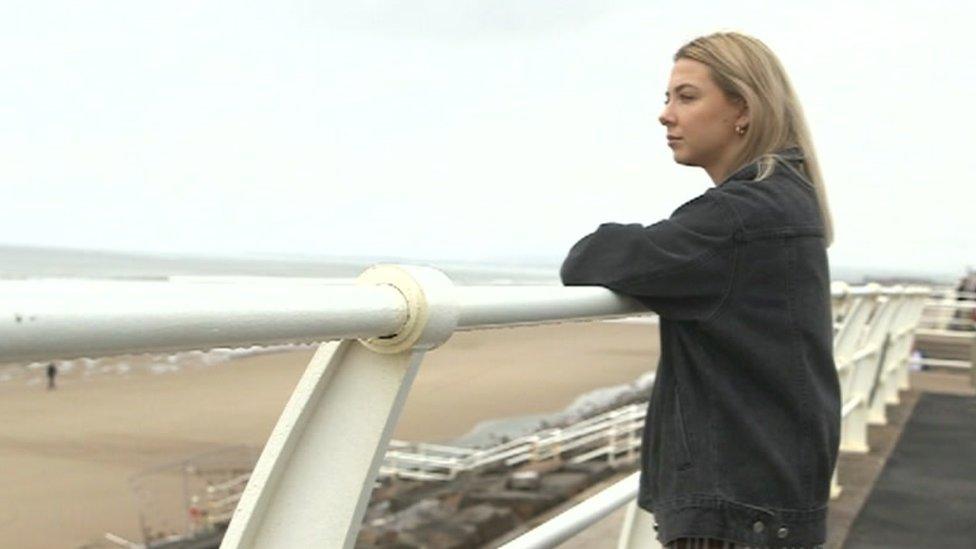
Maia Evans finished the third of her four-year course while in lockdown at home
As with Maia, all that changed in March when Iestyn got the call to cut short his cultural adventure and educational experience.
Both are among about 10% of undergraduates in Wales that either study, work or volunteer abroad as part of their programme each year.
Now hundreds of foreign placements for university students next year are being postponed or cancelled due to ongoing concerns over international travel.
Students who spend time abroad are 24% less likely to be unemployed after graduating and earn £1,226 more annually on average than peers who did not go abroad, according to Universities UK figures.
So for students like George Muter, who was due to swap Aberystwyth University for the United States, it is "really disappointing".

George was hoping for a year studying in the United States before coronavirus hit
The 20-year-old from Manchester was due to spend the third of his four-year international politics degree at Salem in Oregon, but Willamette University has cancelled all offers to incoming international students.
"This would've been a key opportunity to get out there and have that experience," said George.
"It's really difficult to get a year in America and spend time there to work or to live. I've been considering trying to look at internships in the US but it's incredibly difficult to get them."
George looked into options but decided to change his degree to one that didn't include a mandatory year abroad.

George can't now study in the US as Willamette University has cancelled offers to international students
Some students are opting to press ahead with overseas placements, but have been warned by their university that returning may be at their own expense if Covid-19-related travel advice changes in their host country.
And Maia and Iestyn know how stressful and challenging leaving a country quickly in a pandemic can be.
"The threat level increased drastically and things started closing," recalled Maia.
"University encouraged us to come home. I had three cancelled flights, it was chaotic and a really scary time. It was very stressful.
"I was just completely on edge all the time. I was just glad to get home. It is just really sad that it came to an end."
Iestyn, too, had a race against time to get back across the Atlantic to the UK as his closest international airport at Phoenix had "virtually shut down".

Iestyn studied in Flagstaff which is on the United States' famous Route 66
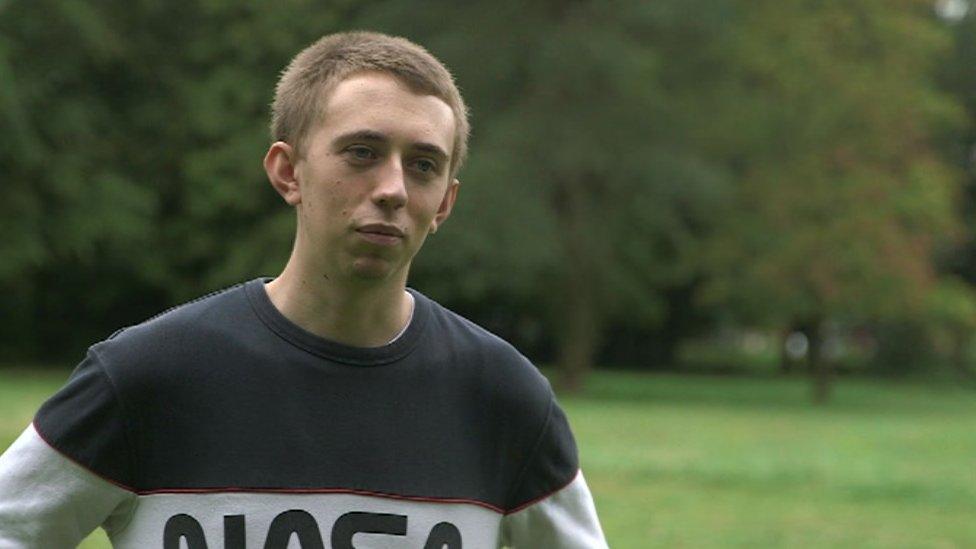
Iestyn had to travel almost 1,000 miles from his university in Flagstaff to Dallas to get a flight home
"There was a lot of panic within my family about how do we get me back home as quickly and safely as possible because airports started shutting down," he said.
"It got pretty serious, pretty quickly. We had to try to find a flight home from a new airport and just try to get anything that was available really.
"We were lucky to get on one of the last flights back from Dallas to Heathrow."
The concern is now coronavirus travel restrictions and Brexit will make it difficult for students to go abroad, particularly those from less affluent backgrounds.
Dr Walter Ariel Brooks, education manager for the British Council in Wales, said studying abroad gave students skills which were "highly valued by employers".
"I think it's crucial that at this point in history for the benefit of Wales, more and more young people venture out and build those international links that Wales will need for its future," he added.
- Published7 August 2020
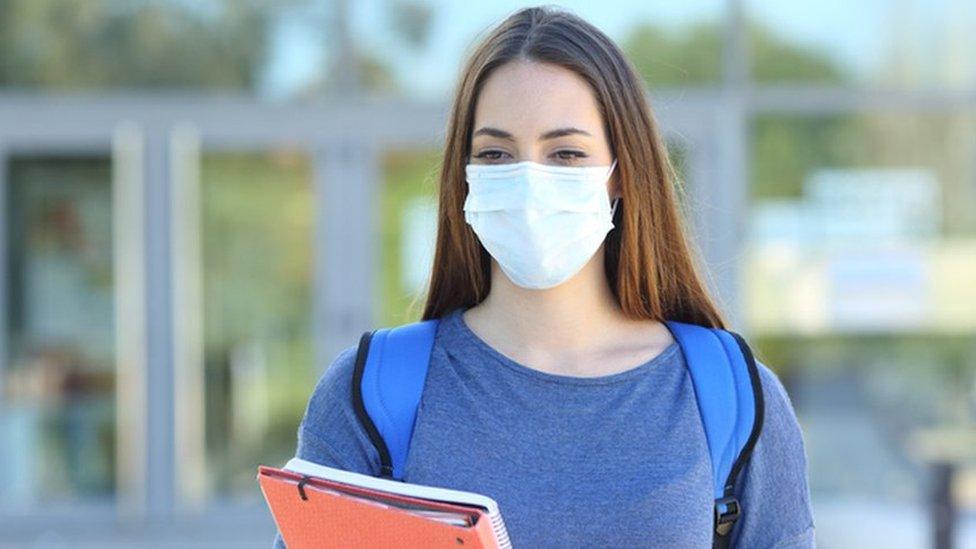
- Published22 July 2020
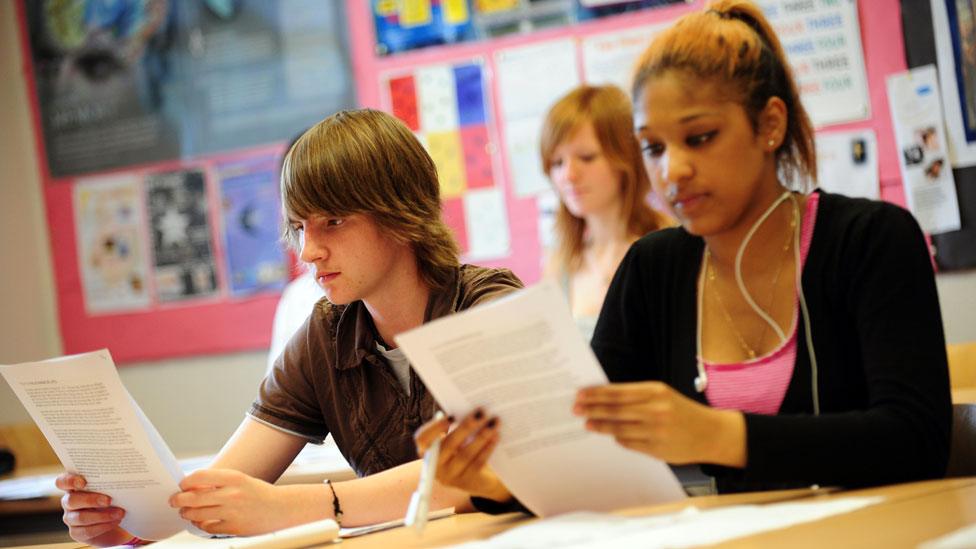
- Published15 July 2020
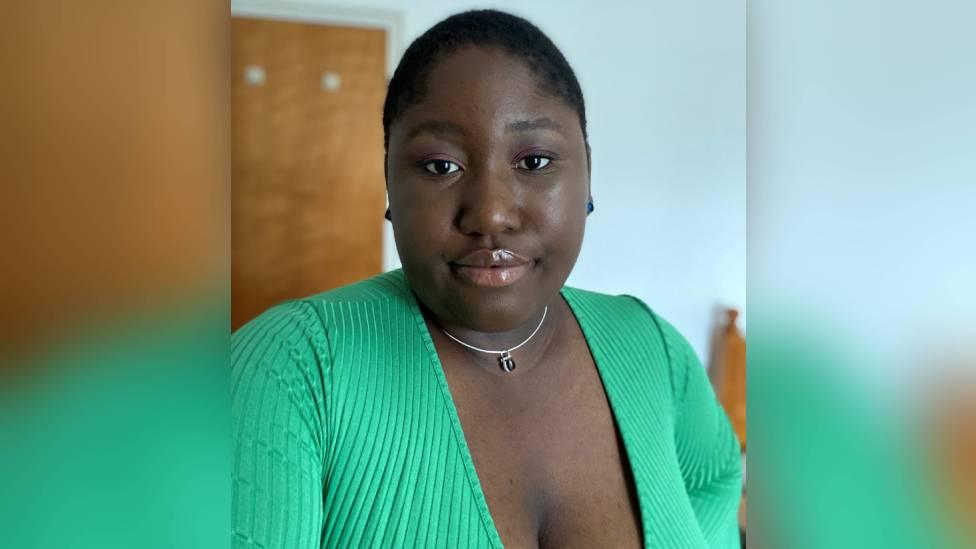
- Published15 July 2020

- Published23 June 2020
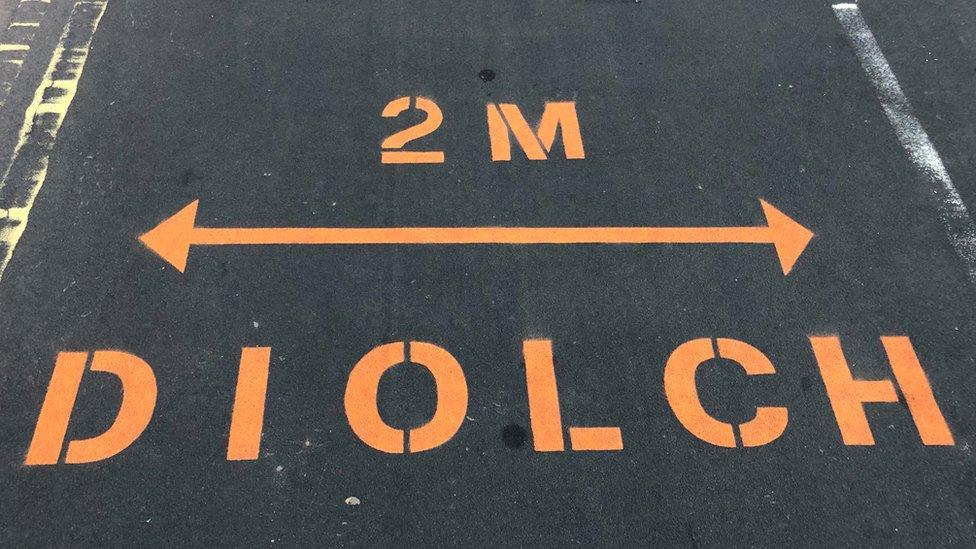
- Published17 June 2020
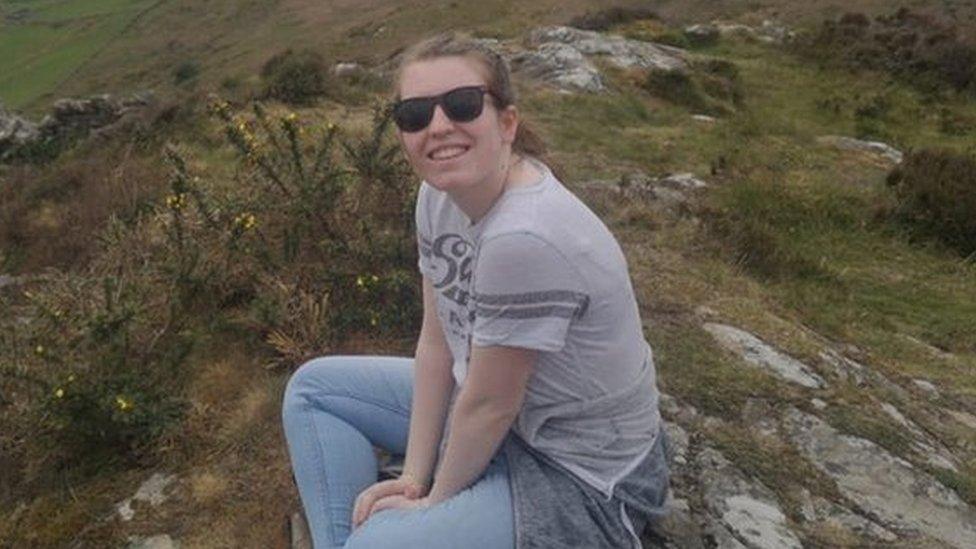
- Published20 May 2020
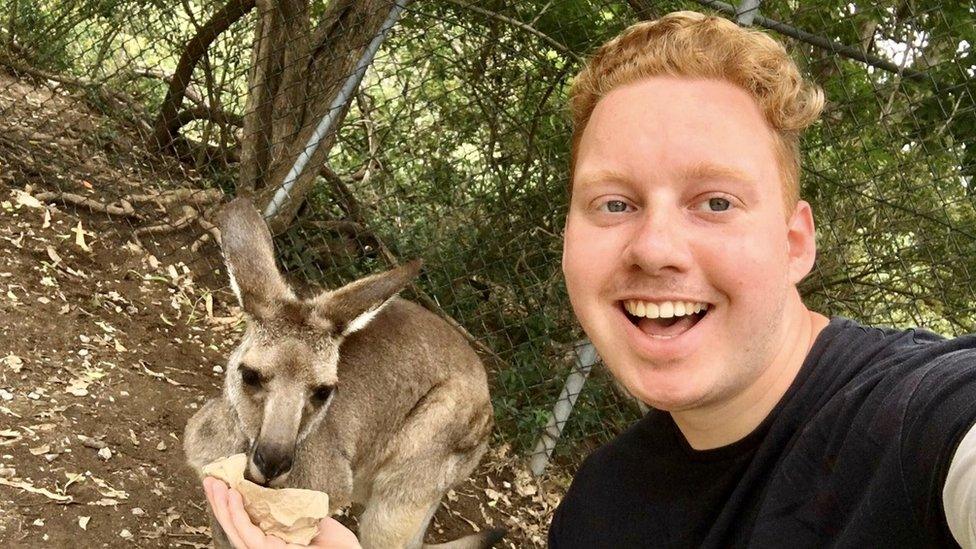
- Published21 May 2020

- Published23 April 2020
